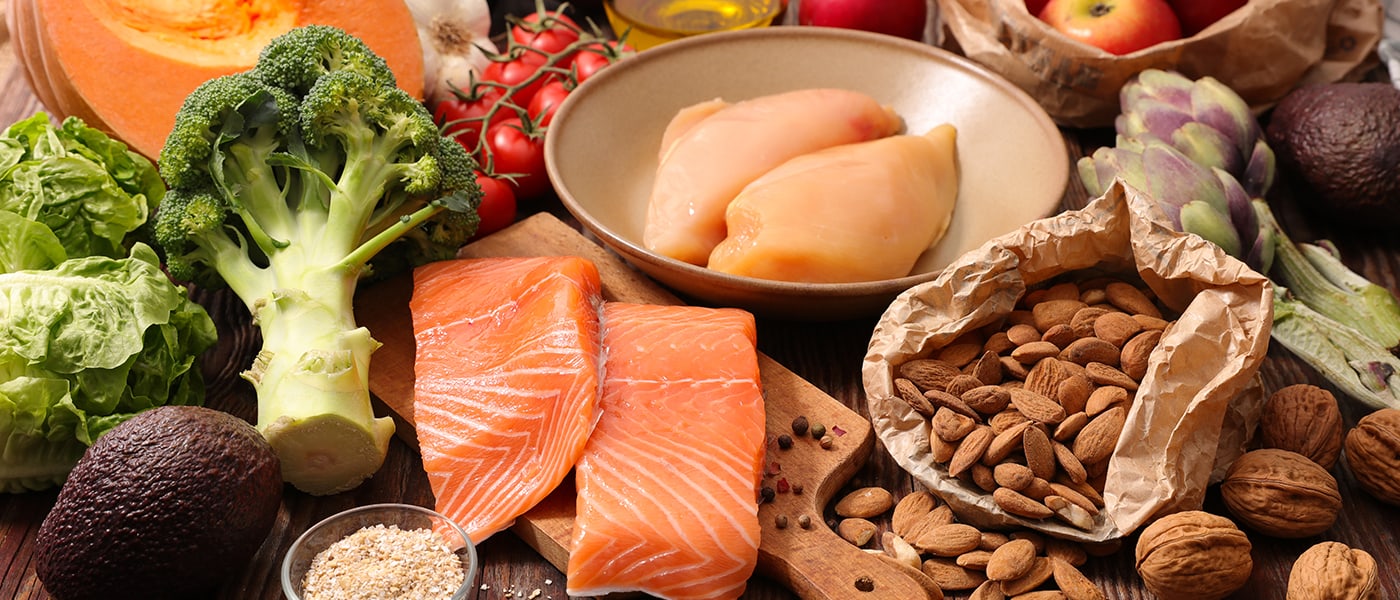What you eat on a daily basis will affect your health over a long period of time. If your diet isn’t well-balanced then you’re placing yourself at risk for heart disease. However, choosing a diet that works best for you isn’t easy to find. We’ll be breaking down how to choose a diet.
Importance Of A Well-Balanced Diet
When learning how to choose a diet it’s important to realize two things. First, your body needs protein and fat nutrients to survive. Second, your calorie intake and physical activity will determine your weight management. Restriction of calories will lead to weight loss. An abundance of calories will lead to weight gain if that’s your end goal. No matter the decision, remember to eat nutrient-dense foods. This will provide the best benefits for your health compared to eating foods that are high in calories but offer little nutrition. Some food can even be cooked and prepared at home, so you’re not restricted to eating out. We’ll be breaking down a few diets that can provide you with more info on how to choose a diet.
Keto Diet
The keto diet has been a popular diet for many in recent years. This diet specializes in only eating protein and fat nutrients. Consuming carbohydrates are not allowed in the keto diet. The word ‘keto’ is short for ketosis. Your body naturally goes into ketosis when the body doesn’t have enough carbs. In this state, the body burns fat instead of carbs and creates ketones. This natural chemical compound is used for fuel. The keto diet mainly helps with weight loss and managing your overall health factors. It should be noted that this diet can be very difficult for beginners since many are used to eating carbs. Also, your brain does function better when eating carbs.
Pescatarian Diet
The second diet to choose from is the pescatarian diet. This diet specializes in consuming seafood as the main source of meat consumption. The pescatarian diet helps those trying to lose weight and control their blood pressure and cholesterol. Foods like salmon and cod are high in protein and low in fats. With this type of diet then remember to steam or grill the seafood. Frying the seafood will lead to an increase in carbs and fats. An excess amount of these nutrients can lead to weight gain and high cholesterol. Both of these elements can lead to bigger health issues like heart disease or chronic back pain.
Vegan Diet
The vegan diet specializes in only eating food that is not animal-based. Eating dairy products, meat, eggs, and fish is not allowed. The vegan diet only includes food that comes from fruits, soy products, vegetables, nuts, and seeds. This diet has been shown to drop blood pressure, cholesterol, and weight and manage overall health. Although this diet can be difficult to adjust to it’s important to stick with it since it does offer a lot of benefits. Finding food to purchase for a vegan diet has been getting easier. Companies are catering to vegan products since this diet is growing in popularity.
Intermittent Fasting
Intermittent fasting can be a convenient diet for some. This diet allows you to determine your eating habits and nutrition. Intermittent fasting has been shown to speed up weight loss, lower cholesterol, and increase cell rejuvenation. It works over a 24-hour period. Essentially you’re allowing your body to get all of its nutrients within a specific time window. Whenever you’re not eating then you’re within the fasting window. For many, they can eat all of their calories within 8 hours. So, that leaves 16 hours where you can’t eat out of the 24-hour period. However, most people get 8 hours of sleep every night. So, essentially you can’t eat within an 8-hour period.
On the other hand, it is important to note that intermittent fasting works for your schedule. If you want a bigger eating window and a smaller fasting window then that’s okay. Make sure to restrict calories if weight loss is your end goal. Intermittent fasting can also help with pain relief treatment.

Related Stories
Red, White, and Soothe: How HiDow Helps You Recover in the Heat
Recovery that works in winter doesn’t always hold up in the heat. The body reacts...
Jul
Massage Gun Showdown: How the Power Duo Compares to Traditional Methods
Have you ever considered that a handheld device could revolutionize your muscle recovery? With the...
Jun
Fatherly Fitness Tips For Men’s Health Month
Men’s Health Month is more than a date on the calendar—it’s a call to action....
Jun
Built to Move: The Everyday Recovery Edit
Movement is what keeps us going—literally. Whether it’s recovering after a run, loosening up after...
Jun
Unlocking The Secret To Tissue Injury Recovery With TENS/EMS Devices
Have you ever wondered why some injuries take longer to heal than others? Tissue injuries...
May
Get Mobile With HiDow TriggerFlex Tools & TriggerFlex 2.0
Tight muscles holding you back? Whether you’re dealing with daily tension or post-workout soreness, recovery...
May